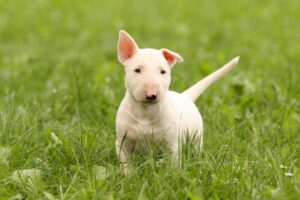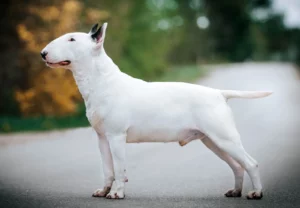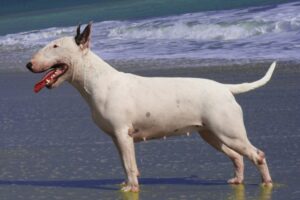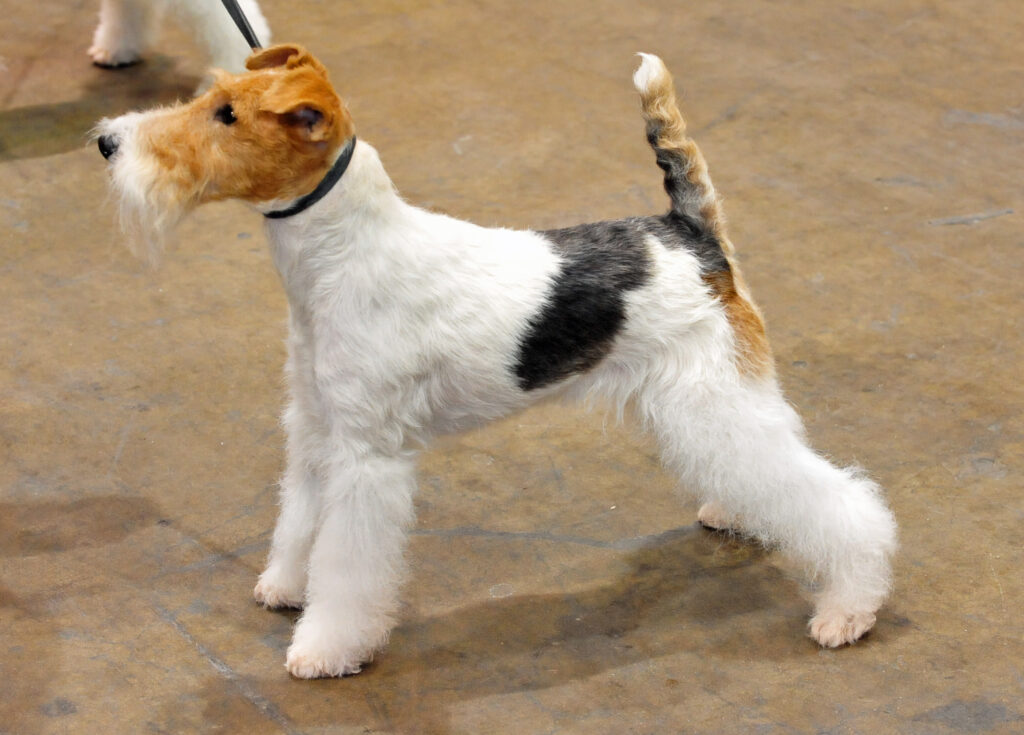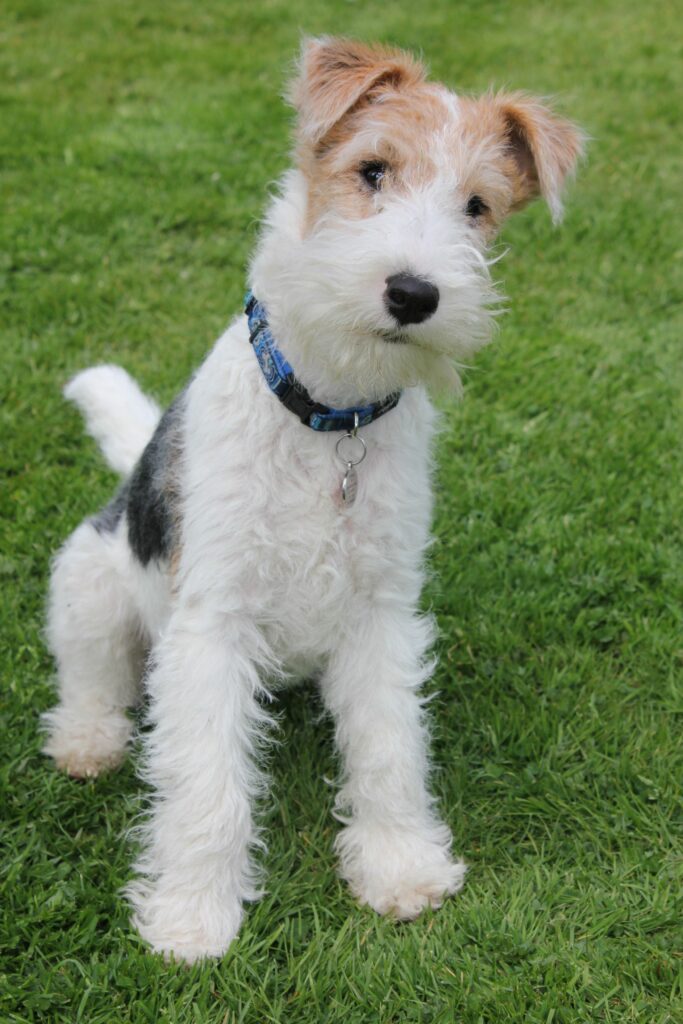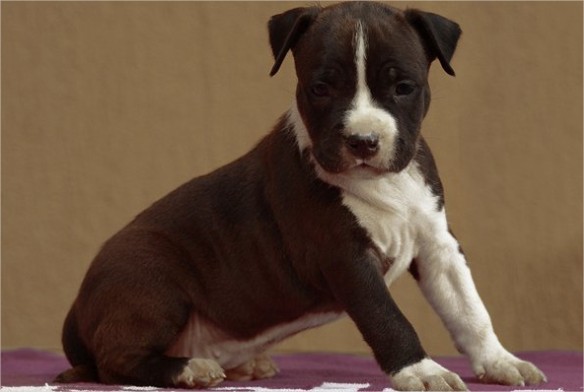Bull Terrier
Mischievous and affectionate
History and General Information of Bull Terrier dog breed
The Bull Terrier is a medium-sized breed that is known for its distinctive egg-shaped head and muscular build. The breed has a fascinating history and unique characteristics that set it apart.
The Bull Terrier’s origins can be traced back to 19th-century England, where it was developed as a fighting dog by crossing Bulldogs with various Terrier breeds. The breed’s original purpose was to participate in bull-baiting, a cruel bloodsport that was eventually banned in the 19th century. Over time, the Bull Terrier transitioned from a fighting dog to a companion animal.
Bull Terriers have a strong and muscular build, with a unique egg-shaped head and small, triangular eyes. They have a short, smooth coat that comes in a variety of colors, including white, brindle, or a combination of these. The breed is known for its distinctive appearance and confident stance.
In terms of temperament, Bull Terriers are known for their energetic, playful, and mischievous nature. They are typically loyal, affectionate, and enjoy being part of their family. They can be strong-willed and independent, requiring firm and consistent training from an early age.
Bull Terriers have an adaptable nature and can adjust well to different living environments, including apartments, as long as they receive sufficient exercise and mental stimulation. They are active dogs and require regular exercise to keep them physically and mentally stimulated.
Grooming needs for Bull Terriers are relatively low. Their short coat is easy to maintain with regular brushing to keep it clean and free of loose hair. They are moderate shedders and do not require extensive grooming.
While Bull Terriers can be good family dogs, proper socialization and training are essential. They can be friendly and tolerant towards children if raised together and introduced properly. However, it is important to supervise interactions between Bull Terriers and young children due to their energy and strength.
The general health of Bull Terriers is typically good, but they can be prone to certain health issues. These may include skin allergies, eye problems, deafness, and knee joint problems. Regular veterinary check-ups, a balanced diet, and exercise contribute to their overall well-being.
Dog Breed Traits
Breed traits that should one consider before going through a list of all dog breeds for adoption or purchase.
Size: Medium-sized.
Adaptability: Adapts well to various living environments.
Allergies: Not highly prone, short coat with minimal shedding.
Friendliness: Loyal and affectionate towards family/known people.
Behavior towards strangers: Variable, can be wary of strangers, not strong guarding instincts.
Friendliness towards kids: Variable, can be good with proper socialization.
Hair/fur shedding: Low shedding, short coat.
Activity/energy level: Moderate to high activity level, regular exercise needed.
Life span: Average 10 to 12 years.
Training difficulty: Can be challenging due to stubbornness, moderate to high difficulty level.
Behavioral history: Developed as a fighting dog, transitioned to a companion breed.
General health: Prone to certain health issues such as skin allergies, eye problems, and deafness.
Available puppies
Bull Terrier available puppies

